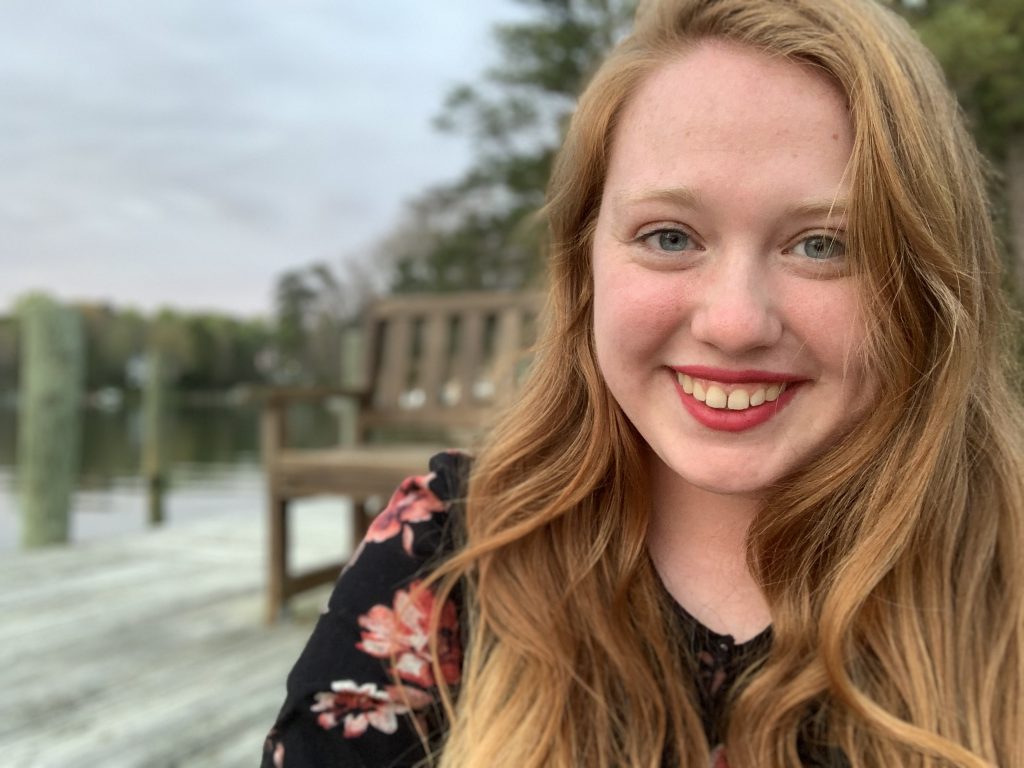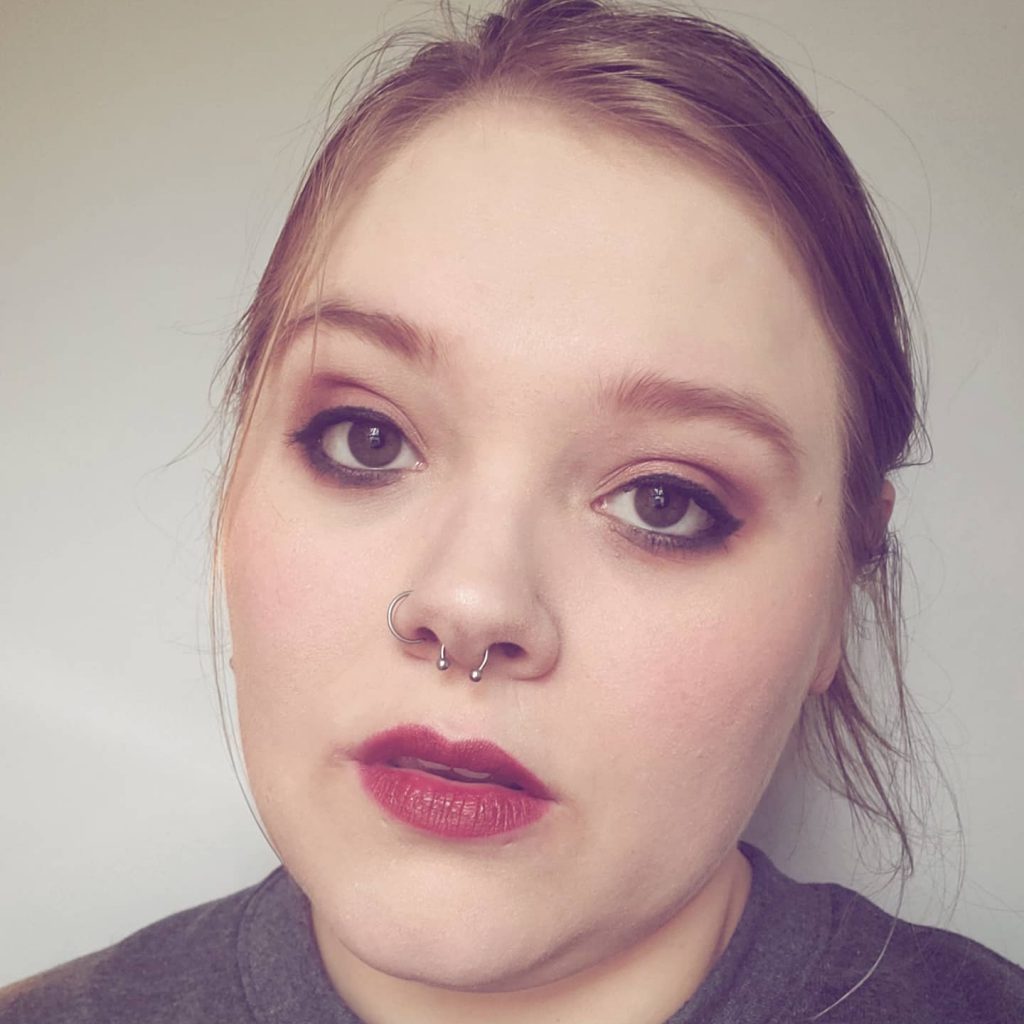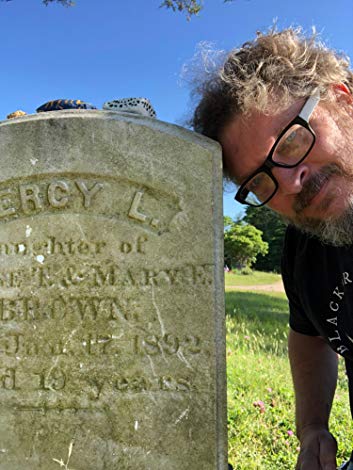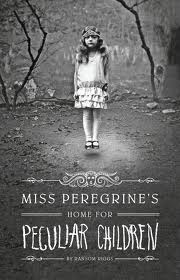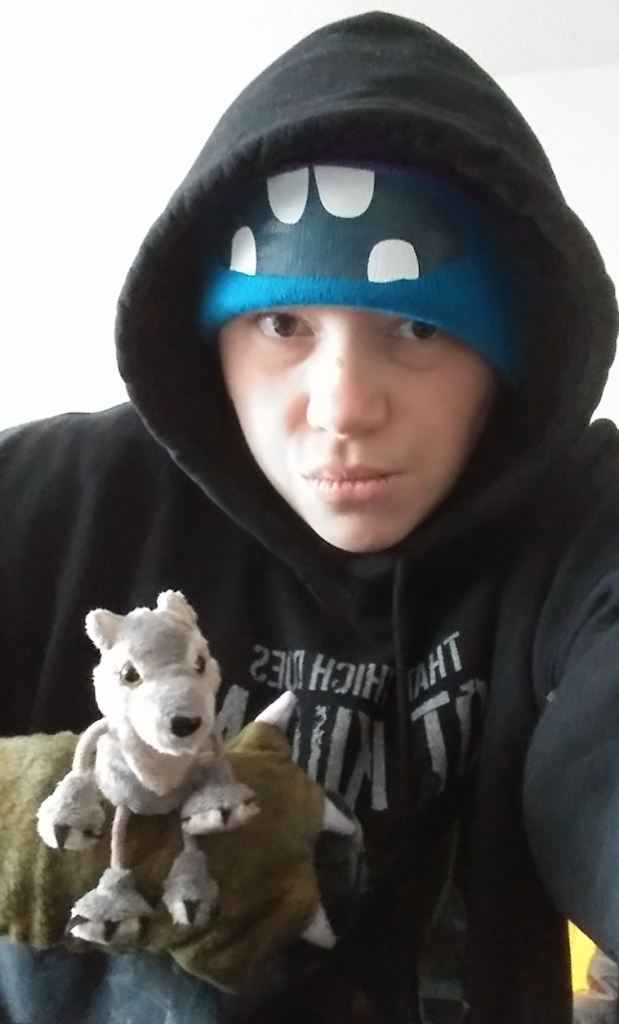edited by Ziv Wities and David Steffen
The interest in Thea Wells even outside of the circle of art lovers and connoisseurs remains strong, and conclusions about her work range from the normal, technical approach of art critics to the downright strange explanations of the ardent believers in the paranormal. To give a brief overview of her art, it does not do to linger too much on either end of this spectrum. Instead, a few key paintings of Wells may be seen as markers of her arc as an artist, of where she started, of where she ended. These paintings also show the overlap between the mundane and those who seek the supernatural in Wells’s work. Other pieces, such as Watercolor of an Ash Tree or Sketch of a Cityscape from the Ledge may have sold for five figures, but they never wove that aura of mystery around themselves.
The evolution of Thea Wells’s skill does not just lie in the brushstrokes and her increased mastery of light and shadow, but also in how she approaches her subject. Most art critics agree on this, and they will point to Shadows of Winged Insects Before a Flame or Breath, from the Inside. Her skill is best savored through select prints of her work, viewed in chronological order. The prints, while they allow paintings scattered in museums and hidden away in private collections all over the world to be seen next to one another, do not convey the vibrancy of the originals and the enchanting quality that makes people stand in front of a Wells and examine it, sometimes for hours.
*
Féli in Nightgown
This is the earliest painting that shows Wells’s lover Félicity M in the classic odalisque pose. Even to this day, no one was able to find out what this elusive muse’s real last name was, where she came from, how she and Wells met. She would usually introduce herself without giving any further details about herself, brushing off curiosities in a polite and joking manner.
In the painting, Féli looks away. She reclines on a lavender colored ottoman, and looks at the observer with her green eyes half closed. Her phone is on a cushion on the floor, her left hand just hovering over the screen.
The door to a balcony is open in the background, and light spills in on a gust of wind that stirs the curtains.
Wells took great care to let us know what we can’t see under the nightgown. Féli’s breasts are delicately outlined against the thin, silky fabric, and the strands of dark hair that run over them reveal more than they cover. Her waist lets the nightgown flow like cream, and the long legs, though they are covered, are tensed as if in pleasure.
Notably, this painting was Wells’s breakthrough. Ever since it went on display it has been targeted by thieves—though thankfully none have succeeded.
*
The Masque
The Masque was painted perhaps a year after Féli in Nightgown at a time when Wells had made it big in the art world, when her paintings were fetching five or six figures (though only the works painted after Féli in Nightgown. Her paintings prior to this are a completely different style, and they lack the later works’ pull.)
The Masque not surprisingly shows a masquerade, but Féli is the only guest, repeated nine times in nine different costumes.
She is an emerald-feathered bird with beak mask, a golden shimmering queen, a harlequin in chequered dress that shows her smooth skin generously.
As a ballerina, her legs are elongated by pointe shoes, she captivates with khol-lined eyes as a mystic with a custard pale snake draped over her shoulders and scales held in on hand, and enchants as a fairy princess with a necklace of black beads coiled around her neck.
Dressed in a robe of stars, she is the night, and with a milky sunrise costume that begins to let Wells’s light and dark mastery show, she is the day.
The ninth costume is unusual. It is hidden in the back, near a curtain and the darkness at the edges of the painted room. Féli is wrapped in a dark robe, a dark hood, and a white mask covers her entire face. She holds a book in the crook of her left arm, and we cannot see much of the volume, except that it appears heavy and old. The mask seems to follow the onlooker. It is a haunting shape, and it could be someone else entirely watching the scene unfold and the observer alike but for the pale hand that reaches up as if to pull back the black hood. It is a woman’s hand, and it looks like that of Féli hovering over her phone in Féli in Nightgown.
The Masque was first owned by a museum, but not for long. A private collector acquired it, and some sources have come forward over the years to claim the museum sold the piece because the people handling it, the people working in the museum and walking past it every day, suffered nightmares in which a hooded shape wearing a white mask featured prominently. The veracity of these claims is doubtful, even if Internet forums are full of stories of people who say they saw The Masque on display and also had the dreams.
*
Sunbathing
This is a captivating piece that attracts crowds, so much so that museum authorities decided to keep the painting in its own room and allow visitors in only in groups, each group being allowed just thirty minutes with the painting.
Sunbathing is, at first glance, quaint. It was painted probably less than a month after the completion of The Masque. Féli is the very center of this painting. She sits, cross-legged, on a green and white beach towel, sand and beach grasses around her, the ocean a distant haze of blues in the background. She smiles. It is a very subdued smile and has been likened more than once to that of da Vinci’s Mona Lisa. Féli is wearing a black bathing suit. The color is harsh against the pastels of the towel and the beach, but her green eyes are sharper still as they look outward, to the observer.
A bag by Féli’s left knee spills over with things people do not normally take to the beach. There are old-fashioned metal scales, beads bound on a string, a mechanical music box. The strangest thing entirely about this painting, however, is the tome that lies open on Féli’s lap, big and old, its pages possibly parchment, bound in leather. It pulls one back immediately to the book the dark figure cradles in her arm in The Masque. Experts have studied the open page. It is covered in the same script that has baffled scholars in the Voynich Manuscript for decades, and just like that enigma, what can be seen of Féli’s book remains untranslated and not understood. The book was not among Wells’s possessions, and it might be entirely a figment of the painter’s imagination.
*
The Diners
This painting is seen as the first sign in Wells’s art that her relationship with Féli was coming undone. It is dated to almost two years after The Masque and Sunbathing, and experts have long speculated that there must have been other paintings of Féli between these two. Whether they remain in private collections, tucked away from the eyes of the world, or whether Wells herself destroyed them is uncertain but a matter of great debate.
In The Diners, Féli is seen having dinner with a stranger. The table is elaborately set, there are glasses one behind the other, and they twist and reflect the room, the table, the food; more than one enthusiast has found hidden symbolism here, like messages glimpsed in a crystal ball.
Red flowers spill their petals on the white tablecloth and the pinkish bloody meat served on a silver platter. Féli’s guest is a man of supreme beauty. He outshines Féli entirely. His hair is dark like hers, as are his eyes, but his lips are flushed with color. Between the two, on the white tablecloth and hidden behind the glasses and the wilting flowers, there is the book again, now closed, and Féli’s guest has his palm flat on the cover, fingers splayed. Neither Féli nor he spare the book any more attention than that; they are focused on each other.
They are leaning in close, caught in conversation. Underneath the table, Féli’s hand is resting high on the stranger’s thigh, and his free hand vanishes under her dress. There is much speculation as to whether this really happened, or whether it was some sort of vengeance, whether Wells put this scene on canvas for all eternity to see Féli as unfaithful. No one knows who the stranger is, and the painting was sold to an unknown buyer at an auction ten years ago.
*
The Chef
This shows Wells’s mastery of light and dark. Féli has her back turned and stands in Wells’s kitchen over pots and pans bubbling on the stove. She is wearing a figure-hugging dress, long and black, and her shadow can be seen on the floor, stretching beyond where the canvas ends.
The light in the kitchen appears ephemeral, there is no source for it, no lamp, and no window. On Féli’s left, ingredients wait to be tossed into the pots, onions and carrots peeled and chopped, chunks of glistening, bloody meat in a dish, the legs and head of a rooster.
Féli has a dark teal vial in her left hand. It could be an oil or spice. She is about to pour it into a pot.
Her hair is coiled and piled on top of her head, and strands spill out like Medusa’s serpents.
After The Chef, Wells’s erstwhile prolific nature changed; she became even more of a recluse and produced only two paintings to sell, though it is speculated these were older works from her private collection. Several dozen unfinished paintings begun after The Chef all show Féli, though they fail to move beyond a mere sketch.
The Chef was loaned to a gala opening at one point, for a single evening. There are reliable sources saying that all the meat dishes served at that opening were spoilt and inedible. Yet, the food had been freshly prepared on that very day. While meat going bad can be more likely attributed to other factors such as temperature and improper handling, some blame the painting for it.
*
The Finale
The Finale is the title given to this painting by curators. Some call it The Last or even The Omega. Wells herself never gave it a name.
This painting was discovered in Wells’s atelier along with her corpse, though the date of its completion is uncertain. The painting is large, ten by seven feet, and it seems to be a riddle inside a riddle inside a riddle.
It shows a circus ring, and many things are happening there at once.
One of the first things that we see is the book, the big tome Wells so often added when she painted Féli. It is once again being held by a figure in black, robed and hooded, wearing a white mask. This time, the hooded figure reminds us of The Masque, but appears decidedly male and is looking toward the center of the ring. In his arms, the book is open. He holds up one finger as if he were reading from it and commanding the listener’s attention. We also see Féli opposite the robed figure. She is dressed like a belly dancer. Most of her skin is visible. Snakes wreathe and slither around her body, her waist, her breasts and ankles, and the expression on her face is one of boundless joy and ecstasy.
A white tablecloth catches the light in the background. It is set on the ground almost as if for a picnic, though plates and silverware and glasses indicate something more elaborate. There is wine in one of the glasses and a pinkish shimmer on one of the plates. The teal vial from The Chef sits on the tablecloth, unstoppered, though whether it is full or empty, we cannot see. Apart from that, there is no food.
Seemingly random items are scattered on the ground. Black beads are spilled like breadcrumbs, and paper has been torn and strewn alongside them, old paper with traces of writing on it that has, unsurprisingly, prompted unsuccessful efforts to reassemble the torn pieces seen in the painting and decipher their meaning. Other things we are shown are the tools of Wells’s trade: brushes, paints, all strewn haphazardly, including one canvas that has fallen face down so that we cannot say what painting it is. Another item that has caused speculation is an envelope. On it there is once more the indecipherable writing from the Voynich Manuscript, and we are left to wonder what message it contains.
In the center of the ring, drawn in shadows, is Wells herself, dressed in red and gold as the ringmaster. She is facedown, and her pale brown hair scatters in the puddle of blood under her. All of the fingers in her right hand stand at odd angles, broken. Her costume bears traces of paint, and it is torn in places. The violence is tangible.
An urban legend surrounds this painting, which is now housed in the Thea Wells Museum after it spent long years in police evidence. The legend says, when you focus your gaze on the figure in black who is reading from the book, you will dream and the dream will have no color at all. You will find yourself in perfect blackness, and there will be music around you as if heard from a distance, carnival music that echoes strangely distant and metallic, as if it echoed from an old music box.
*
That last, untitled painting is disturbing. It becomes even more so when viewed side by side with the photographs taken by the police of the scene they found in Wells’s atelier, or at least those that were leaked following her death. While those crime scene photos say nothing about Wells as a painter, they bear mentioning because they seem to echo The Finale. Wells can be seen facedown in her own blood. In reality, Wells wore a simple red shirt and no costume, but the tears in the fabric, as far as visible in the photographs, match up with the tears we see on the ringmaster’s costume in the painting. Wells’s blood has dried to a dull maroon, not the scarlet seen on the canvas. She was cut and bruised, her right hand—the hand she painted with—revealed to have been broken extensively.
Wells had been attacked. In the police report, leaked shortly after the photographs, one officer said they had only ever seen wounds like that in the mountains, when a bear found a hiker and took them down with claws and teeth. No wild animals were reported in the area of Wells’s residence, and no other signs of them were found in Wells’s atelier.
One thing that is different in reality is the negative of a shape in the dried puddle of Wells’s blood. It appears as if something large and rectangular was there when Wells bled out. When she was found, it had been removed. Some claim it was the tome, that leatherbound strangeness, that kept the floor clean where it lay because it drank all the blood that touched it.
Thea Wells’s murder remains unsolved.
Féli has never been seen again, not even at Wells’s funeral. However, if you look closely at all the photographs taken of that event, you will see a figure among the celebrities and pedigreed royals who have come to say farewell to a genius artist who defined a generation. The figure is in only one or two photos, and they seem to be wearing a long, dark robe. While their face is shadow-wrapped, it appears pale, smooth, mask-like. It could just be one of the mourners, seen from an odd angle with unfavorable lighting. Or not.
The question of the dark man, Féli’s alleged lover, also remains. When The Diners first sold—minutes after it was hung in the gallery—people asked Wells about him. Wells refused to say anything about the painting or its subjects, having become eccentric and like a modern-day hermit by that time already.
To this day, Wells’s paintings attract not just art-lovers and historians but also believers in the supernatural. The police are regularly called to Wells’s grave to break up séances held by self-proclaimed mediums and their congregations.
Féli remains a mystery as well. Yet, one art historian has told this author, in confidence and on the condition that their name not appear in this article, that they have seen Féli, her face, her dark hair and green eyes, her uncannily pale skin and distinctive features. The historian found her on another canvas, which cannot be clearly attributed to an artist. Yet, that canvas was confidently dated to more than 300 years ago. It is the portrait of a seated woman who looks exactly like Wells’s Féli. Far in the background, one can just make out the sinking bulges of a circus tent, a harlequin in their chequered dress walking inside through the flap. This painting’s basis in reality, just like its creator, is not clear. How it managed to capture the woman that appears in Wells’s paintings 300 years later, is unknown.
© 2021 by Alexandra Seidel
2800 words

Alexandra Seidel writes strange little stories while drinking a lot of coffee (too much, some say). Her writing has appeared in Future SF, Cossmass Infinities, and Fireside Magazine among others. You can follow her on Twitter @Alexa_Seidel or like her Facebook page (https://www.facebook.com/AlexaSeidelWrites/), and find out what she’s up to at alexandraseidel.com. As Alexa Piper, she writes paranormal romance books which have been rumored to make people laugh out loud in public.
If you enjoyed the story you might also want to visit our Support Page, or read the other story offerings.

